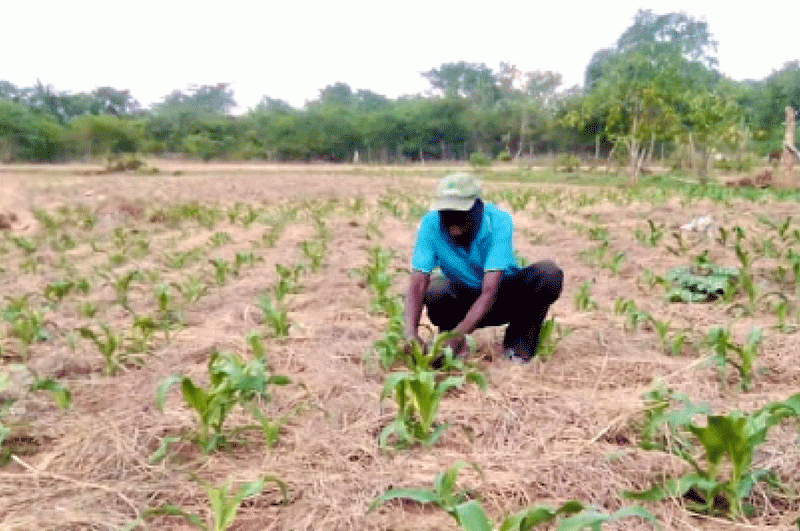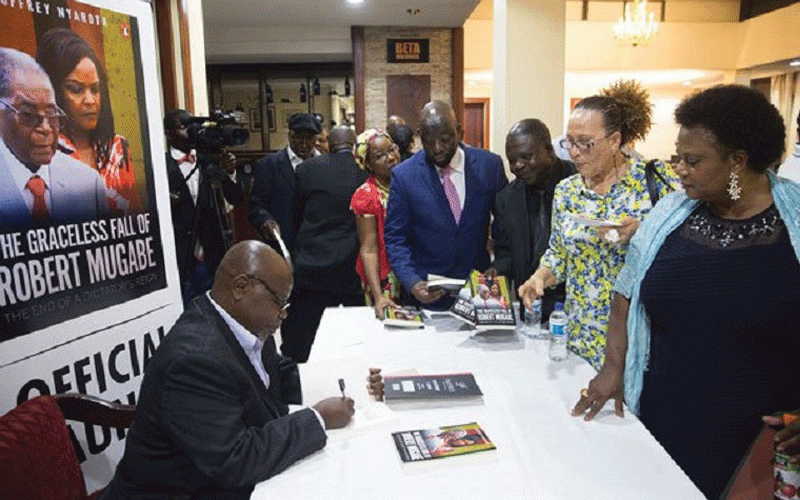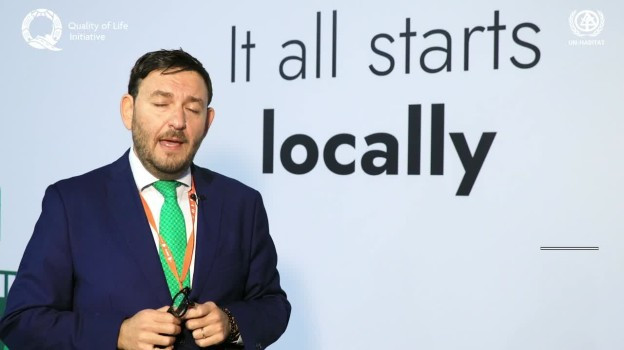
At around 8 am we pick up the last member of the quartet that make up our travelling party. I am relieved that the contingent is finally complete without so much as a hitch and we can focus on the journey.
An odd, fascinating bunch we are – the four of us. Let me introduce you. On the wheel there sits Alan York, sixtyish, white former landowner displaced by jambanja. On the passenger seat is myself – fortyish scholar-journalist interested in strategic renewal of Zimbabwe’s agriculture. In the back seat lounges Cde Dr Sadomba, sixty-something year old agrarian anthropologist, liberation war veteran cum academic. Next to him Dickson slumbs: mid-thirtyish, vibrant agricultural graduate youth leader evidently feeling sleepy this morning. It is a potentially radioactive group, and I fully intend to play my self-imposed role of referee-player. Needless to say, I am generally dismal at refereeing: I prefer to play way too much!
On later reflection, I come to realise that the four of us have some degree of commonality. First is commitment to our nation, each in their own way. Second is an orientation to learning; that is what this journey is all about. We are on our way to a Learning Retreat on Holistic Management, facilitated by. Allan Savory at Dingamombe, near Victoria Falls. Third is an affinity to the land – vana vevhu (children of the soil). Last is a personal commitment to progressive problem-solving, each after their own fashion. There is not a single bone of apathy in our combined bodies. Each exudes a steely self-confidence and a sense of competent and stable self-identity.
As we move further westwards, the highveld plateau gradually gives way to scrub lowland, and the conversation gravitates towards our common interest: land and agriculture. Cde Sadomba presciently frames our problem as a choice between Alvordism (industrial, Western-based agriculture) and the “backward” but ecologically harmonious African agriculture it supplanted. It is quite clear from the beginning that the conversations will involve a lot of reappraisal and re-litigation of the past, an activity that I know from experience can be fraught with explosive danger.
The early exchanges soon become a battle of the elders. Alan is an advocate of modernisation, a proponent of relentless march forward. We need to keep pace with global best practice. That means only a few efficient farmers on the land, with the capability to produce enough food for everyone. This frees up everyone else to do other things in the economy without worrying about food production. Booming serve game, Mr York. Smooth, persuasive. Over to you Cde Sadomba. “Alan, you say you want to go forward, but where is ‘forward?’ Who determines what counts as forward or backwards? Is ‘forward’ about pumping the environment with poisonous chemicals responsible for the slow death of the living ecosystem?” Powerful backhand there Cde Sadomba, instantly turning defence into attack.
Soon enough, the conversation evolves into a broader contest between European and African civilisation. Well, I should say Cde Sadomba wrestles the conversation in that direction. Now, in full flight Zvakanyorwa Sadomba is a sight to behold. He gets animated, and his stature literally swells as he gestures forcefully, the raised voice dominates space. But it is the eyes that capture the man’s expressive mercuriality. The eyes move from full dilatation to piercing slits, to closed…in a matter of seconds.
Cde Sadomba’s thesis is: a generally inferior European civilisation supplanted a much superior African civilisation during colonisation of Africa, and Africa has been worse off ever since. He paints a vivid picture of a great civilisation – a superpower- emerging on the Zimbabwe plateau a couple of centuries ago. A civilisation that produced food in abundance, employing farming methods attuned to the needs of the environment. He outlines how the invading European settler regime hatched a deliberate policy to undermine African agriculture as part of imposing its will on Africa. After years of trying and failing, this was finally achieved by the American missionary Alvord in the 1950s. Sadomba bemoans how the white settler regime replaced a reverent, spiritually-attuned and ecologically harmonious agricultural practice with a Godless, extractive and self-serving alternative.
Alan probes: “How about the modernising influence of European culture – transport infrastructure, markets, vehicles, farming implements . . .weren’t these at least positive influences introduced by the newcomers?” The answer is swift and unequivocal. No, no, no . . . that is just propaganda. The only aspects of European civilisation that was superior to African civilisation were weapons . . . because Europe was an inherently uncivilised continent where people mastered the barbaric arts of butchering each other for survival. Can you equate butchery with civilisation?
- Tarakinyu, Mhandu triumph at Victoria Falls marathon
- Andrea The Vocalist, dreams big
- All set for the 2022 Econet Victoria Falls Marathon
- Econet Victoria Falls Marathon return a boon for tourism
Keep Reading
Another jab from Alan: If African civilisation was that advanced by the time of colonisation, how come people lived in simple mud and thatch houses? That torches off another erudite lecture about the merits of African architecture, engineering, mathematical knowledge and metallurgy and what constitutes advancement in those domains.
On long stretches of the journey, between Gokwe and Lupane, we pass through farm land in various degrees of use, misuse and disuse. The conversation flows and ebbs…meandering slowly as we negotiate a bad patch of dirt road. As one or two take turns to sleep, the conversation lulls. But like homing pigeons, we return to agriculture. Dickson opines that our agricultural productivity and national food security would surely improve if we create space on the land for qualified people such as agricultural graduates. That precipitates another forceful repudiation from Cde Sadomba. Who is a qualified person? Qualified in what? If anything, graduates of Agricultural Education (and the larger education system) contribute to the perpetuation of the false narrative of a superior European agriculture; based on the doctrine of Alvordism that conflates modernisation with “progress”.
I query: How do we create space for more people on the land? Through downsizing landholdings, comes Sadomba’s ready response. I agree, adding that we need to evolve criteria for how we achieve that. But Dickson is immediately up. No, he insists, downsizing is not the answer. Dividing the land into smaller units is inimical to commercial farming. You need economies of scale for certain aspects of agriculture: actually some farm units would need to be consolidated.
But I argue that the land reform was all about redistribution; the need for equitable distribution of land was the objective of land reform. Surely that means downsizing to accommodate more people? Land holding can’t be determined by the requirements of a certain crop or enterprise. It must be determined by what is good for people!
Alan says: “What we need are competent people on the land”. I become fully awake then, more in my element. Competences evolve in line with people’s culture, aspirations and environmental constraints. For example, compared to Europeans, precolonial Africa had a different “education” system, and a different notion of “competence”. Competence is about the ability to function satisfactorily within a given situation. It is context-specific. In relatively simple and stable societies such as precolonial Africa, education was coterminous with life, with no need for it to be organised around specialised institutions called “schools”. Life itself was school enough.
However, a more complex and specialised environment (the modern world) demands a prolonged period of formal learning in special organisations called schools. Moreso, a dynamic complex society demands much more than committing to memory a set of facts. It demands the ability to learn as situations change; flexibility, ambidexterity, a more holistic appreciation and thereby a more balanced response.
As we get nearer our destination, the conversation turns to the subject of our retreat: Allan Savory’s Holistic Management. And the arguments flare up again. Sadomba opines that Holistic Management, Sustainable Agriculture, Regenerative Agriculture, Pfumvudza and other related concepts and ideas . . . were nothing but descriptors or derivatives of African forms of agriculture. There is nothing new there. It’s all about rebranding what Africans have known for centuries, a cultural appropriation by a European knowledge system that objectifies and personalises knowledge for commercial exploitation…
I see the elephant first. Its huge grey form floats from my left, ambling straight into the road and on a collision trajectory with us. I scream a warning; Alan instinctively leans on his horn and brakes hard. I don’t know who is more startled, man or beast. Luckily the flustered beast checks his step, immediately backs up and melts into the dusk. Our competent driver exhales and turns the air blue with some choice expletives, but is none the worse for wear. The incident shakes everyone thoroughly awake. It isn’t long now to our destination. Darkness is fast approaching when a few kilometres down the road, we see the roadside legend: “Dingamombe Safaris” and we turn left into the dirt road.
As dusk turns to darkness, we reach the packing lot of the Holy Grail: The African Centre for Holistic Management. And somewhere in the vast wilderness of Dingamombe, Allan Savory must be preparing to welcome us. I can’t wait to meet him.
Part 2 of this series (Retreat to Vic Falls: Meeting Allan Savory) is coming soon.
Magwiroto is a lecturer at the University of Zimbabwe, Department of Community and Social Development, Faculty of Social and Behavioural Studies. Qualifications: PhD candidate (UZ), Msc. Communication for Development (Reading, UK), B. Ad.Ed, Dip. Ad.Ed (UZ), Dip. Animal Health and Production (Mazowe).











